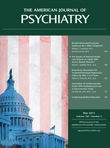Bias is pervasive in our society—age, gender, sexual orientation, race, profession, nationality, and political affiliation to name a few. But do these biases, consciously or unconsciously, influence our behavior or performance? In this book, Claude Steele, Provost at Columbia University, explores these biases called “stereotype threats.” Steele reviews the research that puts the theory of stereotype threats to the test and discusses the social implications of the findings.
Studies that test this hypothesis compare one group performing under the stereotype threat while another performs when the threat is removed. A specific example is illustrative. A common societal bias is that African Americans are less intelligent than Caucasians. The hypothesis predicts that under test-taking conditions, African Americans would be concerned (consciously or unconsciously) that a poor performance would confirm the societal stereotype and that this concern, by itself, results in poorer performance. In fact, that is what was found. In a test of verbal reasoning, Caucasian students performed better than African American students. However, when the threat was removed and the test was given as “a task for studying problem solving in general” and “did not measure intellectual ability” (p. 51), African Americans performed at the same level as Caucasians. Similar effects are found in many other situations, such as comparing male and female math majors and athletic performance among African American and Caucasian students. During situations of stereotype threat, autonomic changes increase anxiety and arousal and result in decreased performance. Brain imaging studies reveal an increase in activity of the ventral anterior cingulate cortex, indicating emotional activation.
These threats unconsciously alter performance and decisions, including deciding where to apply to school (e.g., would we attend a school if it does not represent any members of our group?) and even with regard to the Supreme Court (e.g., what was the difference when there were two women on the Court?). Long-term exposure to stereotype threat results in chronic stress, with adverse consequences on health. Steele discusses how we need to address this problem in society and specifically in the educational system.
But are there other implications for psychiatry? Steele mentions a vignette of an individual with bipolar disorder who writes to him about her concern of letting others know of her disease. If performance on miniature golf is affected, performance in life will be as well. What are the effects of the stereotype threat that psychiatric disorders are signs of weakness that can be controlled if you try hard enough? Does this exacerbate the symptoms of psychiatric disorders, and does it affect our interpretation of our patients' symptoms (since we are also subject to the same societal biases)? We all have seen “professional patients” who appear to spend their entire lives in many therapies, to the exclusion of a productive life. How do we parse out and study what is the effect of disease versus the stereotype threat that psychiatric patients are unproductive and need intensive treatment?
Research suggests that stereotype threat influences the pattern of recovery after a concussion. Expectation of recovery is correlated with symptoms several months later, i.e., those that expect a better recovery do better (
1,
2). If objective tests, such as performance on a math test, can be influenced, it will affect neuropsychological test results as well. Data from testing in elderly populations (with the threat that it will reveal evidence of dementia), reviewed by Steele, and testing from a nonclinical sample of students who had a history of concussion suggest that it does (
3). I have never seen this discussed on any of the hundreds of neuropsychological test reports that I have reviewed.
Whistling Vivaldi not only confronts us to think of the effect of society's biases on individual performance but provides us with a novel perspective on our patients' problems and how we interpret them.

